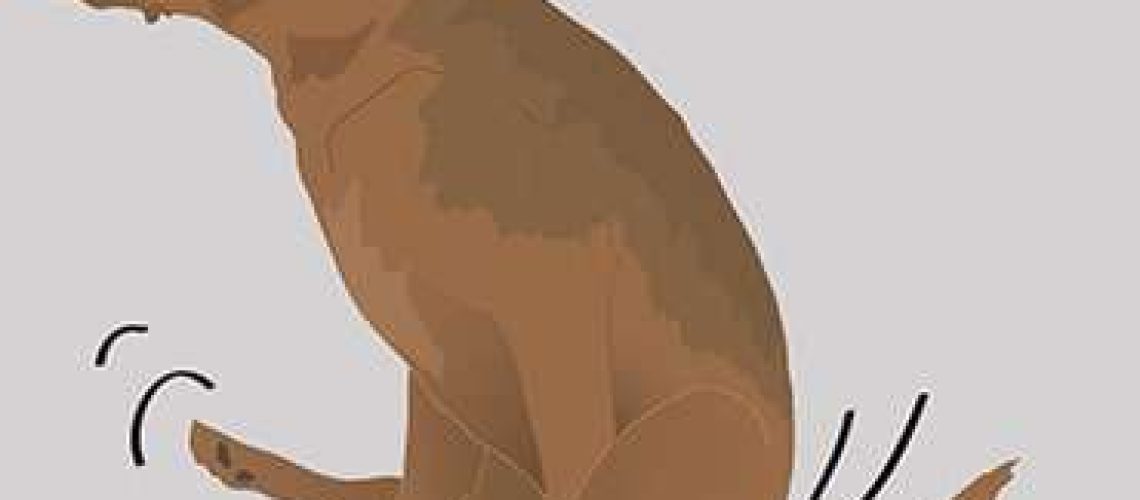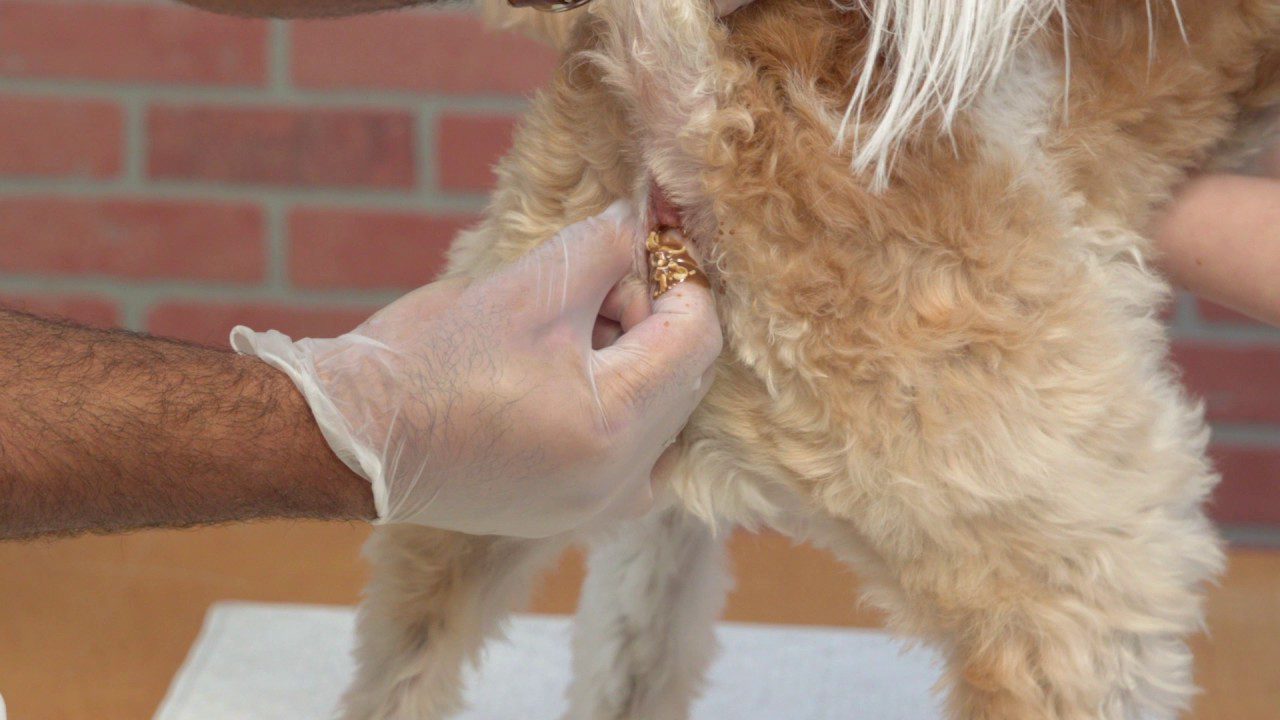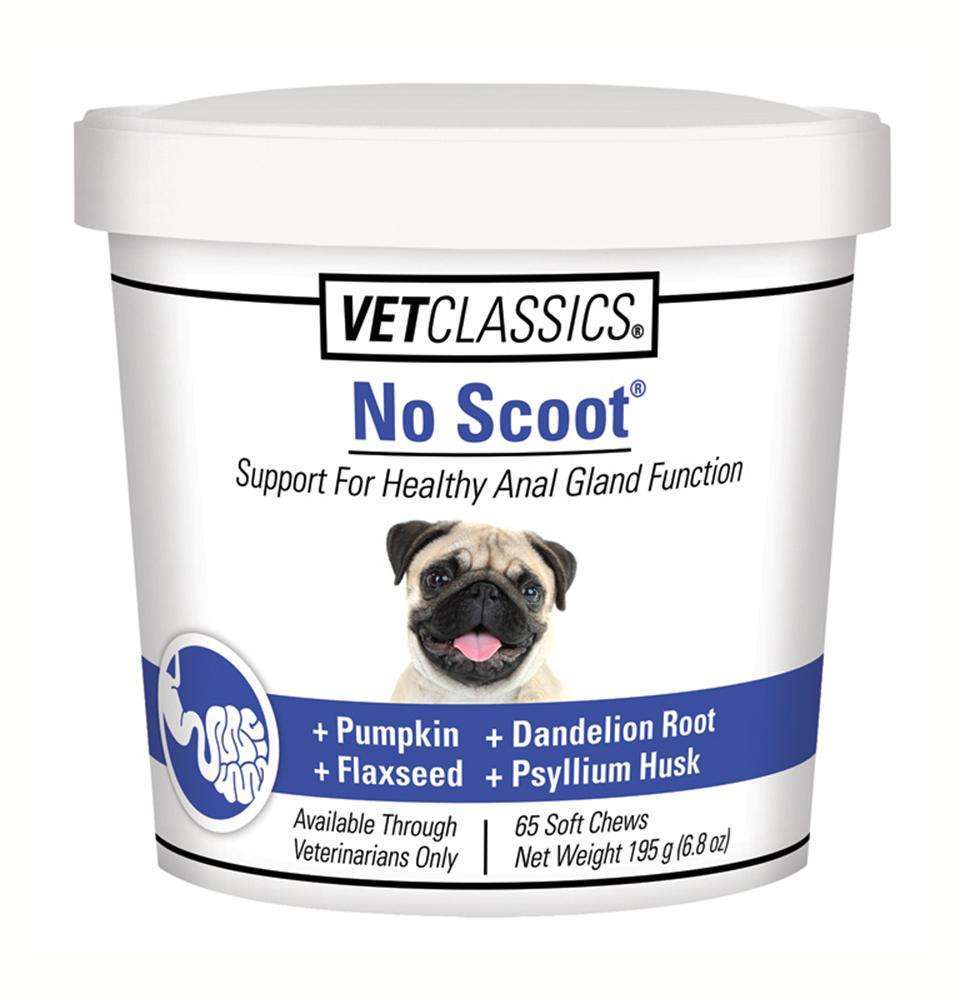Key Takeaways:
- Scooting across the floor may indicate that your dog is experiencing discomfort or irritation in their anal area.
- Common causes of scooting include impacted anal glands, allergies, parasites, or infections.
- If your dog is scooting frequently, it is important to take them to a veterinarian for a proper diagnosis and treatment.
- Regularly checking and cleaning your dog's anal area can help prevent scooting and related issues.
- In some cases, dietary changes or supplements may be recommended to improve your dog's overall digestive health and reduce scooting behavior.
Are you curious about why your furry friend has been dragging their bottom across the floor? Well, get ready to uncover the fascinating reasons behind this peculiar behavior! Understanding why dogs scoot can not only help you better care for your pet, but it may also prevent potential health issues down the road. So, if you're eager to delve into this subject and become a doggie detective, keep reading! By the end of this article, you'll have all the knowledge you need to keep your four-legged companion happy and healthy. Let's embark on this investigative journey together!
Why Dogs Scoot Across the Floor: Understanding the Behavior
What is scooting?
Scooting is when a dog drags their bottom along the ground by sitting and pulling themselves forward with their front legs. It may seem strange, but dogs do this for a reason.
Why do dogs scoot across the floor?
There are a few reasons why dogs scoot. One possible reason is that they have an itch or irritation in their anal area. By dragging their bottom on the ground, they may be trying to scratch or relieve the discomfort.
Another reason dogs scoot is because they have something stuck in their fur around their anus. This could be feces, dirt, or even parasites like fleas or worms. Scooting helps them try to remove these irritants.
Reasons Why Dogs Drag Their Bottoms on the Ground
Anal gland issues
Dogs have small scent glands near their anus called anal glands. These glands produce a smelly liquid that helps them mark their territory. Sometimes, these glands can become blocked or infected, causing discomfort for your dog. In an attempt to relieve this discomfort, they may start scooting across the floor.
If you notice your dog scooting frequently and excessively licking or biting at their rear end, it's possible that they have an issue with their anal glands. It's best to consult with a veterinarian who can examine your dog and express the glands if necessary.
Inflammation or infection
In some cases, dogs may scoot due to inflammation or infection in their anal area. This could be caused by allergies, bacterial infections, or even parasites like tapeworms. If your dog's scooting is accompanied by redness, swelling, or a foul odor, it's important to seek veterinary attention. The vet can determine the underlying cause and prescribe appropriate treatment.
It's worth noting that scooting can also be a sign of other health issues unrelated to the anal area, such as urinary tract infections or skin allergies. Therefore, it's crucial to consult with a veterinarian for a proper diagnosis.
The Need to Scoot: Explaining Your Dog's Behavior
Instinctual behavior
Scooting is often an instinctual behavior in dogs. In the wild, wolves and other canines may drag their bottoms on the ground to mark their territory with their scent glands. Even though our domesticated dogs don't have the same need to mark territory as their wild counterparts, this instinctual behavior may still persist.
Additionally, some dogs simply find scooting pleasurable or comforting. It could be similar to how we humans scratch an itch; for dogs, dragging their bottom on the ground provides relief and satisfaction.
Anxiety or stress
In some cases, dogs may start scooting due to anxiety or stress. Just like humans bite their nails or fidget when they're nervous, dogs may resort to scooting as a self-soothing mechanism when they feel anxious or stressed. If you suspect this might be the case for your dog, it's important to address any underlying anxiety issues through training techniques or consulting with a professional dog behaviorist.
Possible Health Issues that Cause Dogs to Scoot Across the Floor
- Blocked or infected anal glands
- Inflammation or infection in the anal area
- Allergies causing irritation
- Bacterial infections
- Fecal matter or foreign objects stuck in the fur around the anus
- Parasites like fleas or worms
Tips to Help Prevent Your Dog from Scooting Across the Floor
- Maintain regular grooming and hygiene practices to prevent fecal matter or foreign objects from accumulating around the anal area.
- Ensure your dog's anal glands are regularly expressed by a veterinarian if necessary.
- Keep your dog's diet balanced and provide enough fiber to promote healthy bowel movements.
- Regularly check for signs of parasites, such as fleas or worms, and administer appropriate preventive treatments.
- If your dog has allergies, work with your veterinarian to identify and manage the allergens that may be causing irritation in their anal area.
Should You Take Your Dog to the Vet if They Scoot Frequently?
If you notice your dog scooting frequently or persistently, it is recommended to consult with a veterinarian. While occasional scooting may not be cause for concern, frequent scooting could indicate an underlying health issue that requires medical attention. A vet can examine your dog, determine the cause of the scooting, and provide appropriate treatment if needed. It's always better to be safe and have a professional assess your dog's health rather than ignoring potential problems that could worsen over time.
In conclusion, dogs may scoot across the floor due to discomfort or irritation in their anal area. It is important to check for any signs of infection or blocked glands and consult a veterinarian for proper diagnosis and treatment.
What to do when your dog scoots across the floor?
In summary, if your dog scoots occasionally, it could be due to an itch or a dirty bottom, especially after going outside. However, if you observe frequent scooting, constant licking and biting of the rear area, or any signs of swelling or abnormality, it is important to take them to the veterinarian immediately for an examination.
Why is my dog scooting all of a sudden?
Your dog may be feeling itchy, uncomfortable, or in pain, or they could be constipated. While you may think it's just a behavioral problem, your dog is actually trying to communicate something to you. There are numerous possible causes for your dog scooting, including worms, anal gland disorders, injury, tumors, and other factors.
Why does a dog drag its bum across the floor?
Scooting is the term used to describe when a dog sits down and drags their rear end along the ground. This behavior is a sign of irritation, itchiness, or pain, which can be caused by issues such as worms, problems with the anal glands, itchy skin, or something stuck near the bottom.
Should I be worried if my dog is scooting?
If you see your dog scooting sometimes, there's no need to immediately go to the veterinarian. Sometimes they just have an itch and want to scratch it. However, it's important to monitor how often they do it, but an occasional scoot is not a reason to worry.
When should I see a vet for scooting?
If your dog frequently scoots, it is likely that she is dealing with parasites and is trying to relieve the itch they are causing. Check your dog's poop or her bedding for signs of parasites, which may resemble rice grains. If the scooting persists for more than a couple of days, it is recommended to take your pet to the veterinarian.
Does dog scooting go away on its own?
If your pet scoots a little, it may not be a cause for concern. However, if the scooting continues, they persistently lick the area, or you notice signs of irritation, it's important to take them to a vet for a checkup.
















